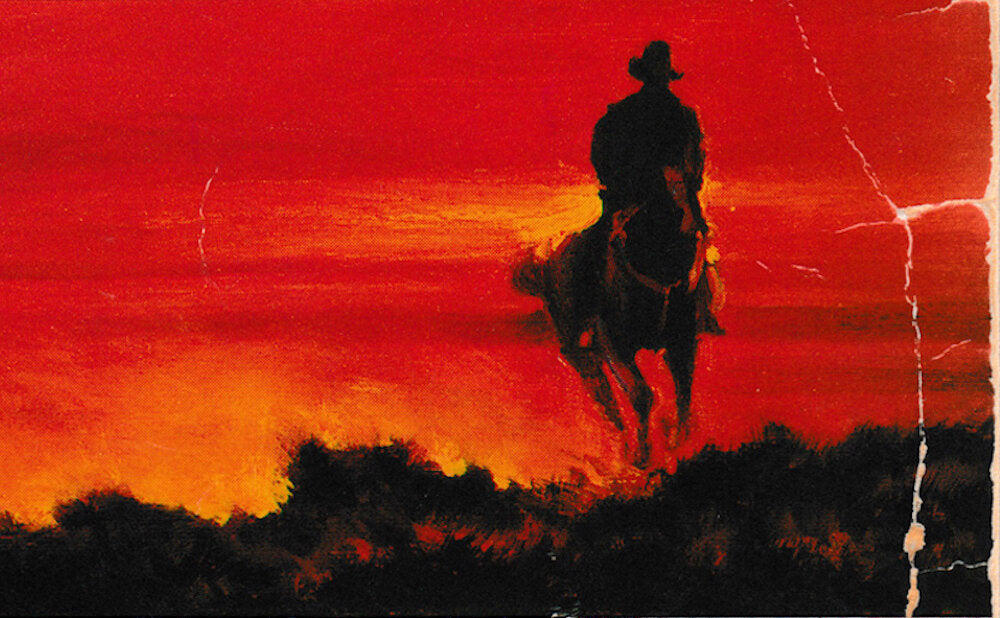
Perspectives on Violence: Blood Meridian

“I didn’t think I could tough it out for those days.” -glassjawIn a day and age where speech and symbolism are considered forms of violence, usually by those fortunate enough to have never encountered it, I think it’s become more important for clear-thinking, rational human beings to maintain perspective for the weaker-minded drones who get their thinking points from social media. It’s become trendy to jump on bandwagons based on hearsay and hashtags and take to the streets for a cause you don’t really understand against an ideology you understand even less, and take ballbats to people over it. I long for the days when our understanding of violence was much simpler and more logical…or was it?In 1981, Cormac McCarthy wrote Blood Meridian or the Evening Redness in the West as a love letter (or hate letter) to the American ideal of Westward expansion and life on the frontier. The novel takes place in the American Southwest in 1865 and is considered one of the greatest, if not THE greatest American novels ever written. It follows an adolescent referred to only as the kid— no quotation marks, no capitalization, nothing distinguishing at all—just, the kid. The kid joins up with the Glanton gang, a band of scalp hunters (based on real gang who operated during that time) on the American-Mexico border. The Mexican government pays a hefty bounty for the scalps of the surrounding indigenous tribes and the Glanton gang is more than happy to oblige them.This premise makes for one of the most violent, brutal, and disturbing books I’ve ever read.As I said, the book is violent as fuck. But, it’s not the typical wanton violence like the kind seen in movies like Natural Born Killers or a Troma flick. This is a type of violence borne out of necessity and utility. In the 20th and 21st centuries, we have a tendency to romanticize violence and ascribe a higher meaning or purpose to it. But, in the middle 19th century, violence was just a way of life. To quote Thomas Hobbes, “Life is solitary, poor, nasty, brutish, and short.” For those people on the frontier, this was their reality. Starving to death or being killed by a neighbor was a very real, daily possibility. There wasn’t always a higher purpose to it, it just was.I think that is the point of the book and the violence contained within it. Sometimes, there’s no good reason for violence, it just is. One of the most notable and disturbing factors of this book is the lack of a moral anchor to which the reader can attach themselves. To wit, there are no “good guys” and no “bad guys.” There is only men doing what they have to in order to survive and men doing what they want because they can. That’s it. There’s no ideology or purpose which serves a “greater good.” There isn’t a hero to root for and despite Judge Holden’s predilection for nihilistic tendency, theres no true villain either. This leaves the reader floating aimlessly in the mire with the rest of the gang and adds a very tangible feeling of desperation. There’s no moral compass showing you the way, there is only waking up and making it thru the day alive, period. No one speaks of the “light at the end of the tunnel” or “doing the right thing” and there’s an almost painful honesty in that.The book itself is a quick read. McCarthy spends much of the book describing in rich detail the landscape of the Southwest during that period in history. He has a blatant and almost pretentious disregard for punctuation which can be frustrating as he doesn’t use quotation marks. There are times when speech, thoughts, and ideas blur because of this abuse. But he also has the ability to make sentence fragments something poignant and beautiful and this is where his unique style and voice shines thru.I recommend this book for our Hitter’s Reading List as it offers up a perspective some of us may not have in this day and age and will allow for the sharing of that perspective with those wayward minds in their towers of moral superiority.
Written By Johnny "Grifter" Peddicord
September 20, 2017









